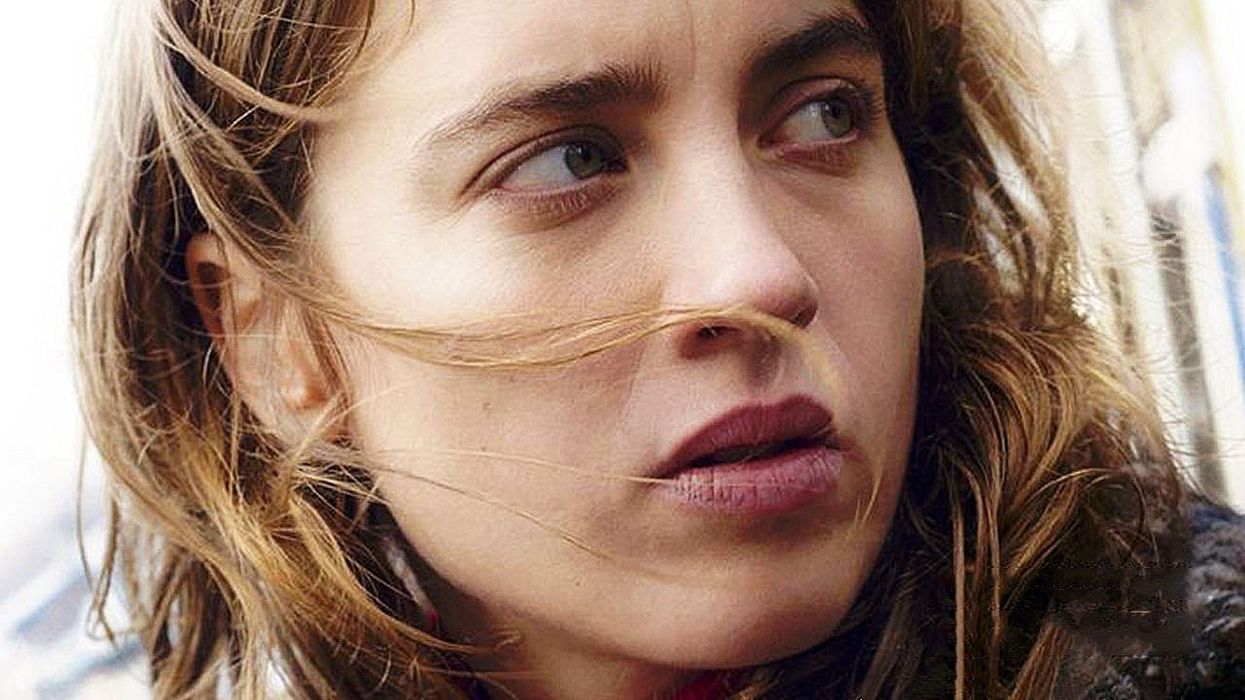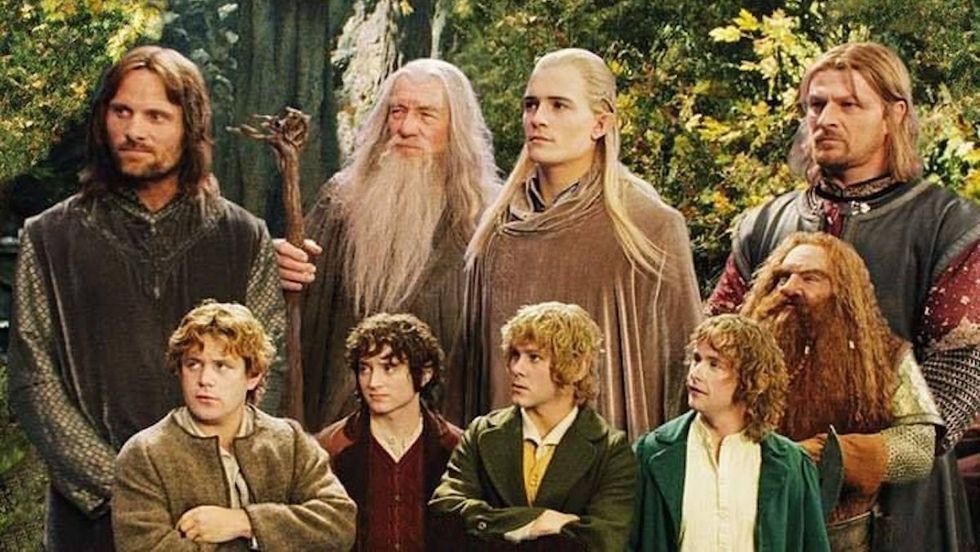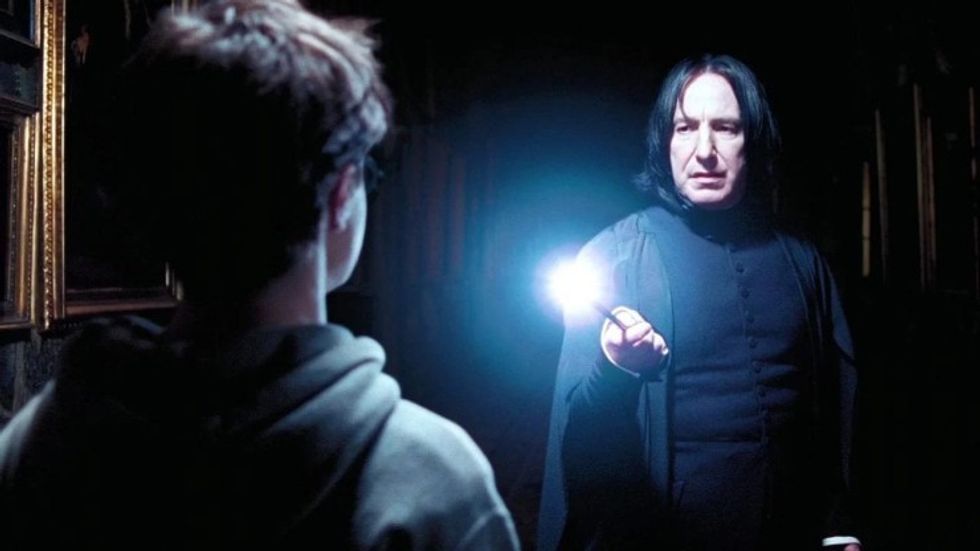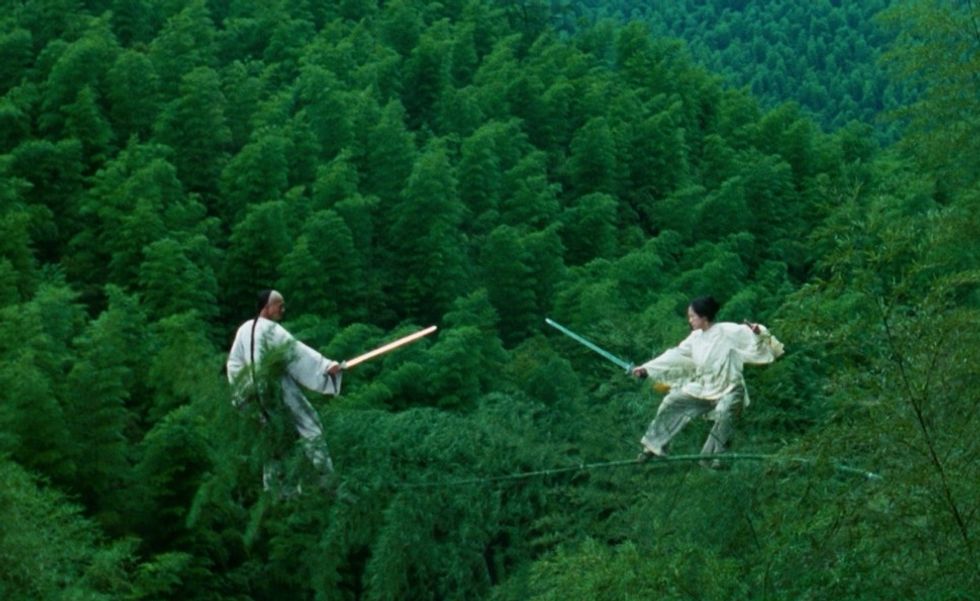How the Dardennes 'Anchor Movies in Reality' with Long Takes and Chronological Shoots
With 'The Unknown Girl,' Jean-Pierre and Luc Dardenne have crafted a suspenseful moral tale about the consequences of inaction.

Jean-Pierre and Luc Dardenne don't mind if the camera misses some action. In fact, that's often by design. The duo, commonly known as the Dardenne brothers, are master architects of realist cinema who have thrown away the blueprints. The co-directors, writers, and producers bring a documentary ethos to their films—most recently, Two Days, One Night, Kid with a Bike, and now The Unknown Girl—by allowing their characters to surprise them in long takes, during which the camera seemingly moves without agenda. Like other social realist directors such as Cristian Mungiu, the Dardennes eschew the sensationalism of drama in favor of the steady trajectory of everyday life, resulting in a powerful suspense of verisimilitude.
"The film is constructed progressively. We live with it. We experience it. We experience the actors becoming the characters. The sets start to be lived in."
The Unknown Girl, which opened in theaters last week, stars Adèle Haenel as Dr. Jenny Davin, a stoic and devoted young professional whose clinic services the underprivileged in a small Belgian town. One night, she decides not to answer a frantic buzzer after hours, only to find out from the police the next morning that the caller, a Jane Doe, was found dead in the street. Consumed by guilt, Jenny embarks on a private investigation in order to find out who the anonymous victim was and ensure that she is not forgotten.
No Film School sat down with Jean-Pierre and Luc to discuss their intricate process, which is committed to the idea that their characters' lives exist before the movie begins and well after it ends.
No Film School: You've said that you are a one-person team of two people. What exactly did you mean by that?
Jean-Pierre Dardenne: What we mean is that when we work in a certain way, we have to be the same person.
Luc Dardenne: We want to make the same movie—it's not that we are one person. We are two people, but we want to make the same movie. We are looking at it the same way. We are experiencing it the same way. It's not as if one of us is saying, "I want to do a white film," and the other one says, "I want to do a black film." We're in sync. And I think that's because we're brothers, and we feel things the same way, throughout 30 years.
Jean-Pierre: You know, it's not magic. We do talk a lot about the film, and we don't always have the exact same intuition at the same time when we're discussing the film.
Luc: It's a pity.
Jean-Pierre: We are not gods.
"Our characters' lives existed before the movie starts and then continue after it ends."
NFS: How do you stay on the same page during the production process?
Jean-Pierre: Before we go on set with the actors, or even with the crew, my brother and I have gone on location many, many times previously. We go on location with a handheld camera to find movement. And then we come back for about five weeks with the actors and with our little camera to rehearse.
There's no way around all of this preparatory work. It's a big process.
Luc: But if we've decided in pre-production that the camera is going to be here and that the actors are going to enter from there, and all of a sudden while we're shooting, one of us says, "You know, we shouldn't have done it that way," we don't have an argument about it. We just adjust. We finish the take and then try it the way the other one thought it might be better.

NFS: You began making documentaries, and now your narrative films are renowned for their verisimilitude. Does your background in docs inform your current work?
Luc: Our documentaries were particular in that we never filmed life as it was happening.
Jean-Pierre: Our documentaries were not exactly reconstituted films, but they were based on archival images and on people talking about things that had happened, etc.
Luc. Witnesses.
Jean-Pierre: For instance, we went out and would talk to people who participated in strikes in factories, and we would go back to where those strikes had taken place. So the form of the documentaries really had nothing to do with the form of our films.
"We allow tension to build with everything that's off camera."
But what we did bring over from documentaries is that life exists before you start the film and it continues after the film. Our characters' lives existed before the movie starts and then continue after it ends.
NFS: How does that idea manifest in the film itself?
Luc: Well, for instance, in this film, we started with the end of a patient's visit rather than the beginning. We could have had the patient come in: "Hello, how are you?" And sit down, blah blah blah, have the examination. We didn't do that. We started with the end of that visit so that you had a feeling that you were coming into something that was already happening. And that's one way of doing it.
Jean-Pierre: And in many of the films—not all, less so in Kid on a Bike—the camera is always a little bit late.
Luc: And in this film, we don't really know what Jenny's going to do. We are not always in the right place for the camera. It's never the wrong place, but maybe almost the wrong place. The character is constantly surprising us.

Jean-Pierre: Another example, in this film, is the sequence when we are in the car with Jenny and the bad guys ambush the person outside. We decided to stay in the car. The camera doesn't move outside. The fact that the camera stays with Jenny creates the sense that things are happening, but we're not really organizing it. We're witnessing it.
We're allowing the tension to build with everything that's off camera. Occasionally, the off-camera sort of comes in on camera, but almost by chance. It's an ellipses in the shot. We keep only one point of view, so often things escape the camera.
NFS: That creates the unique sense of suspense and tension.
Jean-Pierre: Yeah. Also, if we're shooting Jenny meeting with someone, we don't do the traditional [coverage]—you show a shot of a close-up of him, a close-up of her, blah blah blah. Instead, it's often 3/4 profiles from a sort of oblique angle.
And when Jenny is showing the photo of the girl—the unknown girl—we're not always on the photo.
"Long takes give you that feeling of it being anchored in reality."
We wanted to leave space between the characters so that the unknown girl was between them, even when they don't [realize it]. So like in the mobile home, when they're having that whole interaction, there's a silence so that the girl can be between them. And the audience sees the real time the action takes. As an audience member, you're living the same timeframe as the people on the screen are. There are no cuts.
Jean-Pierre: Long takes.
Luc: The long take gives you that feeling of it being anchored in reality because it's real-time.
Jean-Pierre: It's as if you couldn't interrupt the action. What you're filming is commanding the camera. It's as if you can't go and shoot something else.
NFS: And those are the constraints for documentaries.
Luc: For the viewer, yes. For instance, when Jenny's taking the pulse of the older gentleman...to take a pulse, it takes 15 seconds. And we left the 15 seconds. That's real time while she's taking the pulse. We hope that in that silence that the older gentleman is going to speak the truth. We're waiting for her to finish taking this pulse, but at the same time, we are waiting for him to speak.

NFS: You two have been making films for 42 years. I read that you "learned by doing."
Jean-Pierre: We learned a lot from the failure of our second movie. We learned that it was much better for us to work chronologically: first day, first scene. We are like cows that have several stomachs and need to ruminate on the material.
Luc: Two stomachs.
Jean-Pierre: Shooting chronologically, each day can be nourished by the preceding day. The second or third day of the shoot, we often realize that we're starting to get ideas that would not have occurred had we not been shooting chronologically.
A lot of films are made as if you have the architectural plans. You just build the film like, "First, you put on the roof, then you do the basement. And then the electricity." But we don't do that. The film is constructed progressively. We live with it. We experience it. We experience the actors becoming the characters. The sets start to be lived in.
"We are like cows that have several stomachs and need to ruminate on the material."
Sometimes, we come back to the same set and we say, "Well, we never would have known that if we hadn't gone through this discovery process." So then we redo the first take [we did on that set]. It's a little bit like writing a novel. You've written the first page, but you can rewrite it.
NFS: So you give yourselves the opportunity to reshoot?
Jean-Pierre: Yes, but it's expensive.

NFS: Because you have such a consistent tone and choice in story and style, has it been difficult to stay rooted in your ideology and process of filmmaking?
Luc: No, it would have been harder to get out of it!
We are able to stay in it because we're also producers. And we have a French co-producer, Denis Freyd, who is also a friend. And he's very tuned into our work. He never, never, never would say to us, "Okay, you gotta change tracks here." He understands what we do very well. We say he's our third brother.
NFS: It's incredible that you've been able to maintain control over your work.
Luc: On our first film, The Promise, we were given an assistant so that we would shoot faster. We became a terrible war machine. We disgusted that guy so much that we never saw him again. It showed us that we are only a team of two.
Jean-Pierre: He was with us one week.
Luc: One week he lasted, then we never saw him again.

 'The Lord of the Rings: The Fellowship of the Ring'
'The Lord of the Rings: The Fellowship of the Ring'











